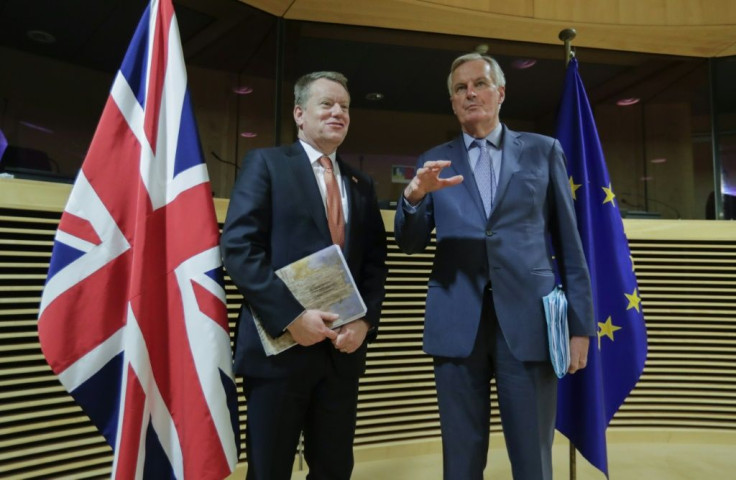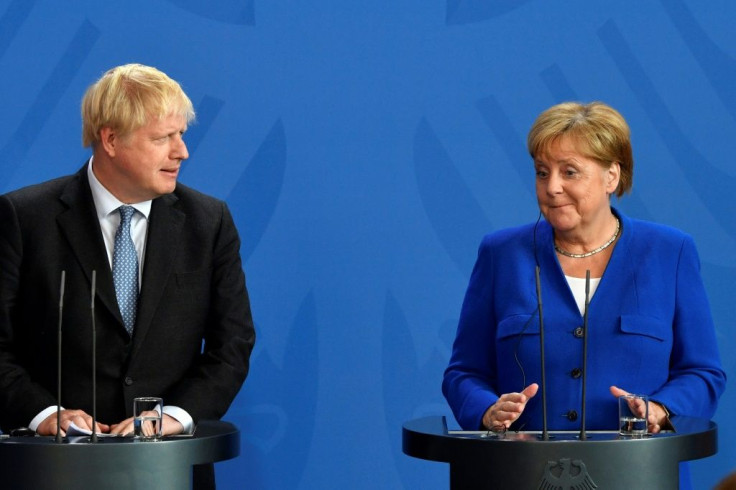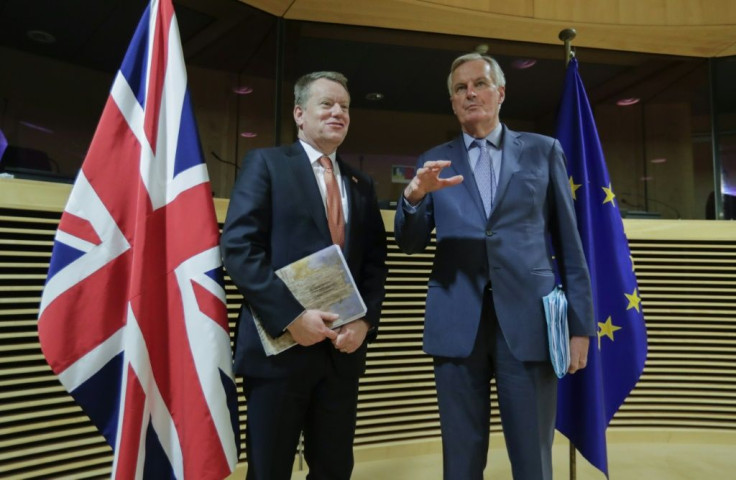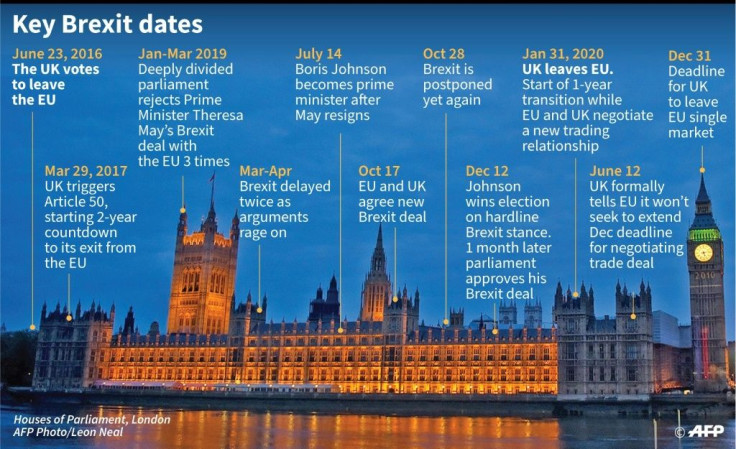EU, Britain Intensify Talks On Post-Brexit Future
The EU and Britain launched Monday an intense five weeks of negotiations on a deal to define their post-Brexit relations, with London keen to wrap things up quickly.
The new round of talks in Brussels was the first held face-to-face since the coronavirus shutdown combined with the two sides' entrenched positions to stall progress.
It is hoped that more intense discussions will make it possible to deliver results after previous sessions, mainly by videolink, achieved little.
But tempers have flared in recent days and Prime Minister Boris Johnson insisted Saturday that Britain was ready to accept the consequences of no deal if common ground cannot be found.

The meetings will alternate weekly between Brussels and London throughout July and again in late August.
The EU "remains calm and united in its principles and values," chief negotiator Michel Barnier said in a tweet.
"We will make the most of our intensified talks over the coming weeks and months," he added.
The teams learned Sunday that Barnier's UK counterpart David Frost is to become Johnson's national security adviser.

Some commentators suggested this could break the British side's focus, but a UK spokesman insisted that Frost's new title did not mean he would be distracted.
"David will remain chief negotiator for the EU talks until agreement is reached or until the talks end," the official said.
"This will remain his first priority. As we have made clear we do not anyway wish these talks to run on into the autumn."

German Chancellor Angela Merkel -- whose government takes over the EU presidency next week -- has also sharpened her public stance, questioning whether London actually wants a deal.
"Of course it would be in the interest of Great Britain and all member states of the European Union to achieve an orderly withdrawal," Merkel told the Sueddeutsche Zeitung daily.
"But that presupposes that both sides want this," she added.

Britain left the EU on January 30 and a post-Brexit transition period during which it still benefits from de facto EU membership comes to an end on December 31.
Without a new agreement, the two sides would see ties reduced to minimum standards set by the World Trade Organization with high tariffs and serious disruptions to business.
At a minimum, London wants to agree on the bare bones of a trade deal this summer -- at least politically, if not legally -- to give businesses clarity well before the end of the year.
The EU is less pressed for time and believes that necessary ratification by the European Parliament and others would require a deal by late October.
The talks are now more streamlined than early rounds that involved hundreds of negotiators.
Barnier and Frost lead smaller teams with the political authority to break logjams.
In a tweet on Friday, Frost said he was coming to Brussels in "good faith".
But he warned: "This needs to be a real negotiation and some of the EU's unrealistic positions will have to change if we are to move forward."
The discussions began with a meeting between the two men and will continue throughout the week with short sessions on the most problematic topics.
These include guarantees of fair competition demanded by the EU in fiscal, social or environmental matters to avoid the emergence of a low-regulation economy on Europe's doorstep.
Other sore points are the role for the EU Court of Justice, access to British waters for European fishermen, and the agreement's actual form.
This could be a very broad deal covering all areas of the relationship, as the Europeans want, or a simple trade agreement with small sectoral side deals as sought by London.
Regarding fishing issues, European Commissioner Virginijus Sinkevicius said: "We aim to reach an agreement that would allow for access to UK waters as of 2021."
Brendan Gleeson of Ireland, who attended a separate video meeting of fishing ministers, warned: "Any loss of quota share or access would have serious long term impacts on our fishing industry."
© Copyright AFP 2024. All rights reserved.




















